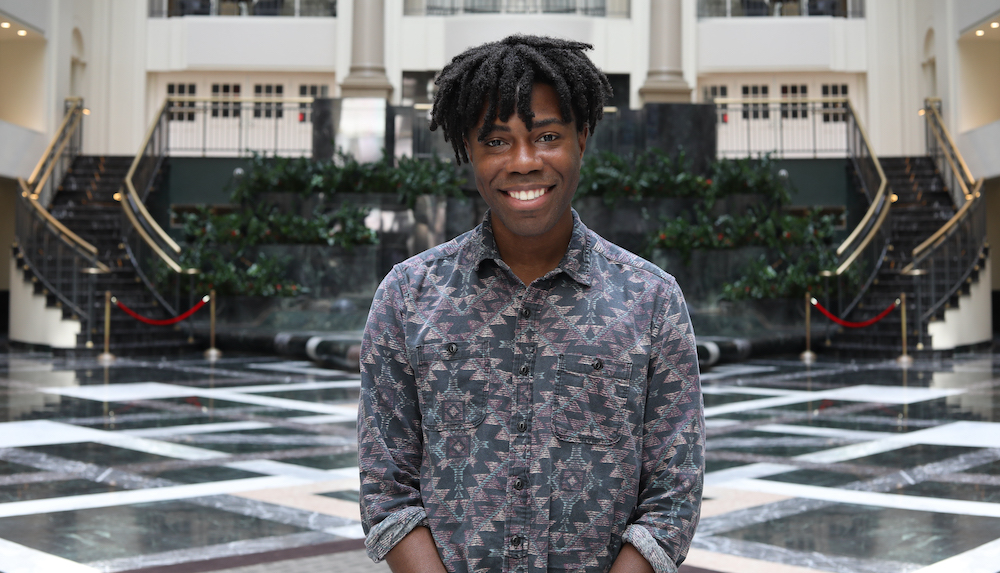The pandemic brought a lot of the systemic disparities that exist in society in stark relief, from digital access to education and health. In Baltimore, it led to a rapid response in the initial weeks of restrictions, as groups formed quickly to fill the immediate needs that appeared.
To look back at how these efforts came together and share lessons for collaborations in the future, Impact Hub Baltimore, Innovation Works and Technical.ly teamed for a Baltimore Innovation Week discussion. Titled “Building Access and Bridging Structural Divides,” Technically Assistant Editor Stephen Babcock and Innovation Works President A. Jay Nwachu, moderated a panel on building access with four organizational leaders that found grassroots solutions to combat systemic issues magnified by the pandemic.
Rebecca Yenawine, executive director of Teachers’ Democracy Project, ran a technology drive for students and families without laptops when schooling became completely virtual. In a city where 75,000 homes lack access to a desktop or laptop, per the Abell Foundation, the disparity in access to laptops for many in Baltimore became evident in the wake of the pandemic. She quickly connected with a group that included City Councilman Zeke Cohen, Baltimore City College-based student activist group SOMOS and eventually the 50-organization Baltimore Digital Equity Coalition.
“It was really impressive how many skillsets people brought to the table and how we rallied around a pretty deep issue really quickly,” said Yenawine.
Teachers’ Democracy Project responded to a need that emerged from the community. The organization isn’t in the device space, but Yenawine realized the need for devices from talking to teachers and students.
So Yenawine collected devices that folks donated at spaces such as Impact Hub Baltimore. Then she took them to music shop owner and technologist Tyler St. Clare to refurbish them. From that point it was a matter of delivery. She would plan out the route with a map and a bunch of addresses, and spent about an hour and thirty minutes every day delivering donated laptops.
“For me it was about connecting with people,” said Yenawine. “I knew that we were providing an important resource, but it was about the connections we make with families. This issue doesn’t end with just giving someone a computer. The issues that have spun off from virtual learning are gigantic.”
Internet access is also one of these issues. In Baltimore city, 96,000 households lack wireline internet access. Johnathan Moore, CEO of Rowdy Orb.it, partners with community centers and schools in the city to expand their Wi-Fi and get internet access to communities that on the wrong side of the digital divide.
In the first weeks of the pandemic, Moore was one of the leaders who have long worked on tech access issues who quickly formed DigiBmore to respond to the urgent needs of the shift to remote school and work.
“We just leveraged our connections,” Moore said of the refurbished laptop distribution and internet access work.
The group stemmed from one post about the digital divide from investor McKeever Conwell. A group of leaders that already knew each other from the tech community responded in the comments, so they hopped on a call and organized. Moore brought connections to the community. Ed Mullin of the Baltimore City Robotics Center could refurbish computers. Andrew Coy of Digital Harbor Foundation had space for intake and school system connections to locate students in need of laptops. Adam Bouhmad of Project Waves was working on community Wi-Fi. Conwell had years of connections in the tech community. Together they put their resources together and found a solution.
“We just went, and everyone just stayed in their lane,” said Moore. “Probably a week after the conversation, we were giving out laptops.”
There was also a need for supplies to respond to the health crisis, and to provide opportunity for youth with all this time in the house.
Rajan Patel, cofounder and CEO of Dent Education, pivoted the org’s Make a Dent program that mentored youth to a Personal Protective Equipment manufacturing program that gave youth jobs and provided face shields across the city.
“We just leaned into what we did and saw problems as opportunities,” said Patel. “We asked ourselves, ‘In this moment what can we do as makers and problem solvers?'”
Another issue that came to the fore was isolation, and how to get resources to those that need it most.
Shantay Jackson, founder of EVOLVE to Lead, collaborated with leaders across the mental health and nonprofit space to create Baltimore Neighbors Network (BNN), a “community of care” for elderly residents in Baltimore.
“It was really about virtual reach outs,” Jackson said of the Baltimore Neighbors Network. “To establish connections and social engagement with [the community elders] during a time when they were told they needed to socially isolate.”
The group was centered around the idea of the people of Baltimore helping people of Baltimore. Jackson believes in getting back to a time where being neighbors meant more than we live next to each other.
She talked about how “everybody’s mom was everybody’s mom and everybody’s dad was everybody’s dad, and you couldn’t get away with anything on the block because everybody was your parent and your grandmother,” said Jackson. “Relationships are the currency that we need to be spending here in our city.”
Watch the full conversation:
[youtube https://www.youtube.com/watch?v=dWpKJ09esHs]
Donte Kirby is a 2020-2022 corps member for Report for America, an initiative of The Groundtruth Project that pairs young journalists with local newsrooms. This position is supported by the Robert W. Deutsch Foundation.Join the conversation!
Find news, events, jobs and people who share your interests on Technical.ly's open community Slack

Baltimore daily roundup: Medtech made in Baltimore; Sen. Sanders visits Morgan State; Humane Ai review debate

Baltimore daily roundup: An HBCU innovation champion's journey; Sen. Sanders visits Morgan State; Humane Ai review debate

Baltimore daily roundup: The city's new esports lab; a conference in Wilmington; GBC reports $4B of economic activity


